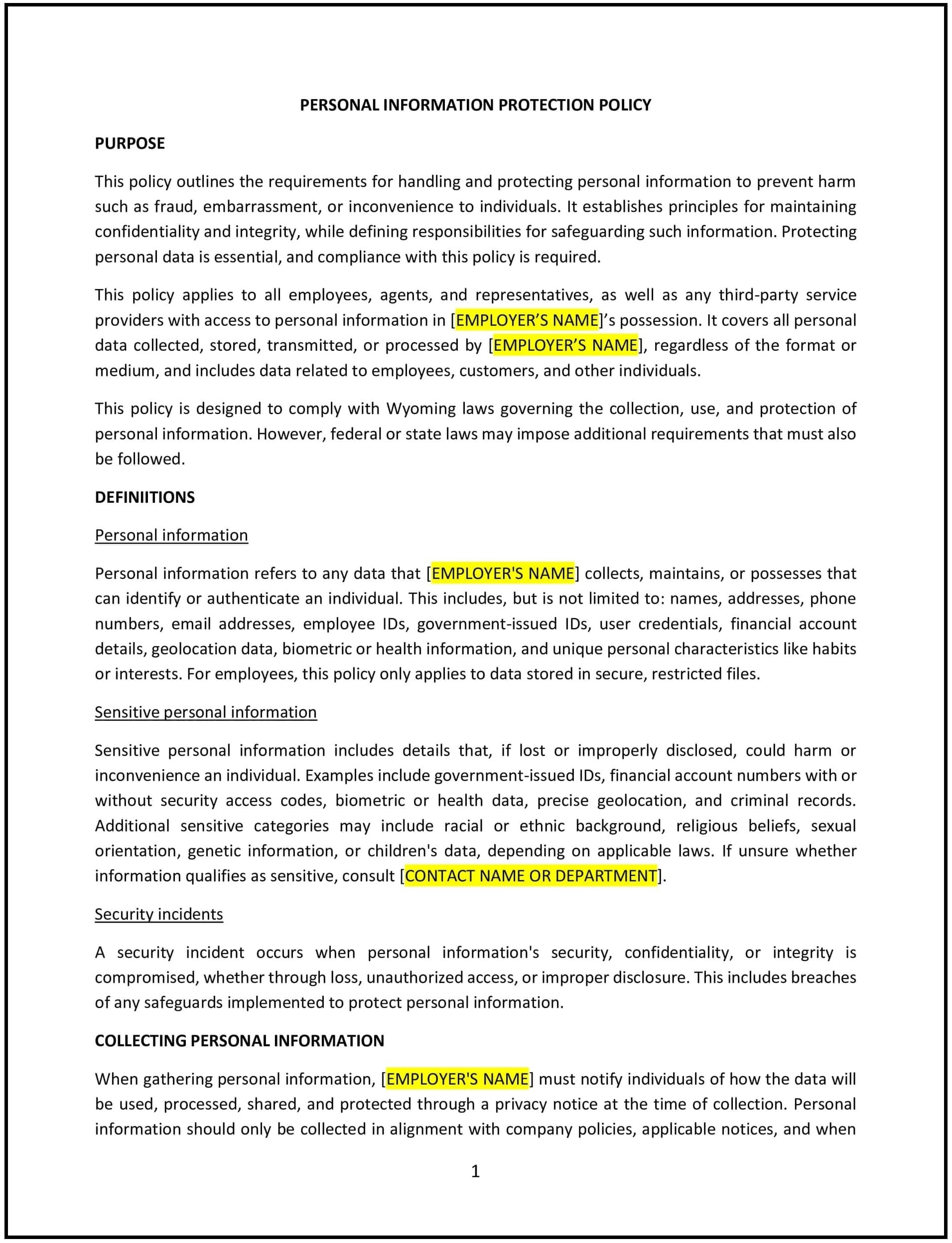Personal information protection policy (Wyoming): Free template
Got contracts to review? While you're here for policies, let Cobrief make contract review effortless—start your free review now.

Customize this template for free
Personal information protection policy (Wyoming)
In Wyoming, a personal information protection policy ensures that businesses manage and safeguard sensitive employee, customer, and business data responsibly. This policy is essential for maintaining trust, ensuring data security, and improving compliance with state and federal privacy regulations.
This policy outlines procedures for collecting, storing, accessing, and disposing of personal information to protect against unauthorized access, breaches, or misuse.
How to use this personal information protection policy (Wyoming)
- Define personal information: Clearly specify what constitutes personal information, such as Social Security numbers, financial data, medical records, or other identifiable details.
- Outline data collection practices: Provide guidelines for collecting personal information, including obtaining consent and limiting data to what is necessary for business purposes.
- Establish storage and access controls: Include measures for securing data, such as encryption, password protection, and access restrictions based on role or need.
- Set breach response procedures: Detail steps for responding to data breaches, including notifying affected parties, mitigating harm, and complying with legal reporting requirements.
- Support compliance: Align the policy with Wyoming data protection laws and federal regulations, such as the FTC Act and the Gramm-Leach-Bliley Act, to ensure legal adherence.
Benefits of using a personal information protection policy (Wyoming)
A personal information protection policy provides several advantages for Wyoming businesses:
- Enhances security: Protects sensitive data from unauthorized access, breaches, and misuse.
- Supports compliance: Aligns with state and federal privacy laws, reducing the risk of fines or legal disputes.
- Builds trust: Demonstrates a commitment to safeguarding personal information, enhancing relationships with customers and employees.
- Minimizes risks: Reduces the likelihood of data breaches and their associated financial and reputational costs.
- Adapts to local needs: Reflects Wyoming’s unique business environment and privacy expectations.
Tips for using a personal information protection policy (Wyoming)
- Train employees: Provide regular training on data protection practices, such as recognizing phishing attempts and securely handling sensitive information.
- Monitor compliance: Conduct periodic audits to ensure adherence to data protection protocols and identify vulnerabilities.
- Leverage technology: Use advanced tools, such as encryption and intrusion detection systems, to enhance data security.
- Foster accountability: Assign a data protection officer or designate team members responsible for overseeing compliance with the policy.
- Review periodically: Update the policy to reflect changes in privacy laws, technological advancements, or organizational priorities.